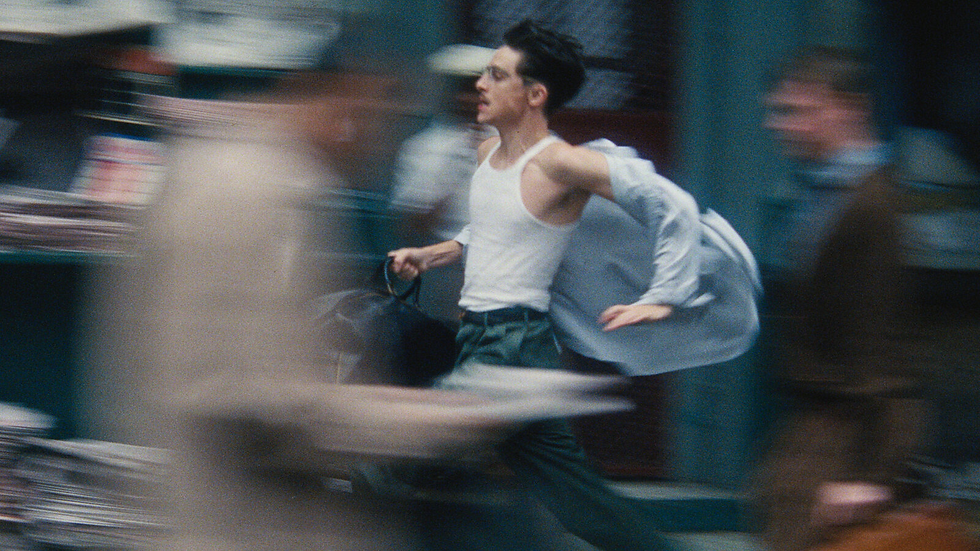"Hamnet:" Chloé Zhao’s Triumphant Return Through Grief and Creation
- Eric Hardman

- Sep 15, 2025
- 4 min read
Chloé Zhao is perhaps the most devastating victim in recent memory of the indie darling to blockbuster machine pipeline. Her 2021 best picture winner Nomadland was a solid choice that year, but people have cited since that there were several other potential picks that year that resonated with them more. And while there is certainly an aura of hers present in Eternals, that film served as the first truly bad entry in the post-Endgame MCU. Also in classic Marvel fashion, it seems as though they’re doing everything in their power to keep people from remembering that the events of that film even happened. Needless to say, Zhao has unfortunately found herself stuck in a pretty large hole that will take a lot to dig out of. Fortunately, Hamnet is not only likely going to dig her out of it, but catapult her back to the top.

Jessie Buckley and Paul Mescal star as Agnes and William Shakespeare as they become parents, and ultimately lose their son, Hamnet, to a seasonal illness. This story, adapted from the book of the same name also allegedly is what inspired William to write Hamlet, which is also incorporated into the narrative.
If all of that doesn’t quite sound like the most emotionally eviscerating film you’ll see all year, let me paint a proper picture of how I saw this. Every single journalist and their mother got up 2 hours before the 8:50 AM screening of perhaps the busiest day of TIFF for everyone, and crammed together in the Scotiabank 3 hopped up on 4 hours of sleep and a press office coffee. It was my 14th film of the festival and I could already feel my brain starting to turn into mush. The lights went down, and the opening shot instantly made my jaw drop…and I don’t think I closed it until the film was over. The entire second half of the film was muffled by the sniffles and tears of the audience, and I was legitimately struggling to breathe through it all in the final moments. I’ve never experienced anything like it.
But don’t get it twisted: this isn’t some giant trauma fest where you watch these people get absolutely pummeled for two hours with no relief. Yes, the film is devastating, but when I say the final twenty minutes of this film is some of the most cathartic, emotionally satisfying work I’ve seen this decade, I may still be underselling it.

Jessie Buckley and Paul Mescal both give performances of a lifetime. It’s been a long time since I’ve seen a film ask as much of a performer as Hament asks of Buckley, and see them not only meet those expectations, but blow them sky high. Her work in this film defies my comprehension, and it is singlehandedly the best performance of the year from any work. Paul Mescal is almost just as fantastic, completely giving into subdued grief and an almost silent performance reliant on his eyes and lips. It’s tremendous. Furthermore, the Jupe brothers are similarly spectacular with Jacobi Jupe giving a potential top ten child performance of all time. His press work he’s done on the premiere tour of the film paints him as a deeply mature, hugely empathetic young man, and these traits explode off the screen in his performance.
Chloe Zhao’s meditative, deliberate direction somehow doesn’t affect the pace of the film at all. The runtime is just over two hours, but it feels like an hour and twenty at best. For a film this emotionally complicated, when it cut to credits I couldn’t help wanting half an hour more of it just so I wouldn’t have to walk away from these characters for the next couple of months. In conjunction, the film has a truly ethereal, hazy look to it that I found utterly transcendent. Despite being a period piece, the film looks, sounds, and is paced as if it could be taking place anywhere at any time.
Composer Max Richter outdoes himself here. Yes, the rumors are true that there is an “On the Nature of Daylight” needledrop in the film, but coming from someone who was concerned about that going in: it’s the best use of it I’ve ever seen. In fact, I audibly began to weep the moment it started. Is it a cheat code? Maybe. Did I care in the slightest? Absolutely not.

Similarly, the inevitable incorporation of the actual play, Hamlet, was thoroughly unexpected, and nothing short of genius. I’ve had some people come to me with concerns about needing to understand Shakespeare, or Hamlet comprehensively to understand the themes of the film. And while I think it could never hurt to have a rudimentary understanding of the art that comes before this film, it is never something the film relies on as a crutch.
I have not stopped thinking about Hamnet all week. It’s a film about healing through creation, and the power of art as a means to group catharsis. The art being created within this film is both moving people nearly 400 years later, and keeping a really special person’s memory alive. If that isn’t an idea that can move you to your core, then I don’t know what will. Being able to continuously retell stories of Shakespeare in 2025, and have them remain as fresh as this is a testament to both the man himself, and the power of art at hand. Mark your calendars for Hamnet. It’s the best film of the year.



